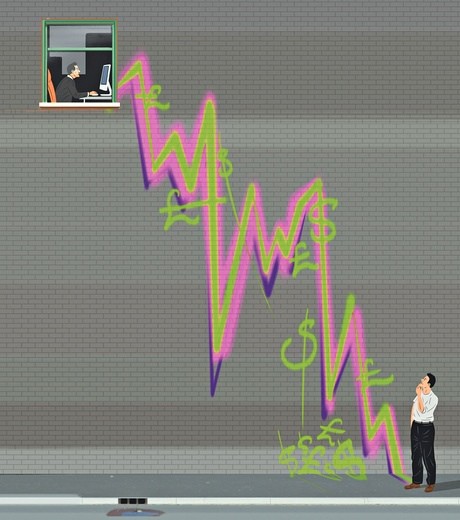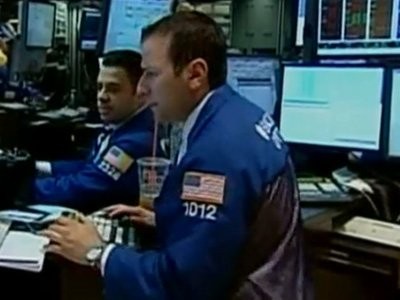HighFrequency Trading Firms Seeking Tech Talent Wall Street & Technology
Post on: 18 Июль, 2015 No Comment

High-frequency trading firms are recruiting programmers and other tech talent. But some prefer Google and Microsoft alumni to Wall Street veterans.
One of the most closely guarded secrets in the competitive world of high-frequency trading is how these black-box firms go about recruiting talent. With high-frequency trading dominating the markets, there is increasing demand at HFT firms for workers with the right skills, especially programmers, strategy builders and quants who can work with complex data sets and build high-performance trading systems. Some observers even believe that the real battle lines on Wall Street will be drawn over hiring programmers and developers, as opposed to traders.
There’s a big push in the space to find people with physics, heavy computer science and quantitative finance degrees, relates John Netto, president of M3 Capital. a proprietary trading firm in New York that also serves as a consultant to the alternative investment space. HFT firms want big, strong mathematical backgrounds to put together these strategies.
According to Petter Kolm, deputy director of the mathematics and finance program at New York University’s Courant Institute. whose master of science of mathematics in finance program specializes in quantitative finance, What they need is people with very strong programming skills, so they get them directly out of schools or through other channels. It’s called ‘real-time system experience.’ These are people who have the experience of writing code and analyzing huge amounts of data and the ability to move data back and forth quickly. Those types of generic computer science skills are always attractive.
But with the proliferation of proprietary trading shops and hedge funds that leverage high-frequency strategies as well as agency brokers doing low-latency algorithmic trading, such candidates are difficult to find, experts say. Joe Long, a quantitative-trading executive recruiter at I-NET Technologies in New York, says a programmer who is good at making a system run very fast in C++ could make as much as $500,000 at a hedge fund. We do a lot in the $300,000 to $600,000 range with a developer that understands Unix. The technology skills are difficult to find, he reveals.
Good programmers are hard to find, confirms an executive with a proprietary trading firm in Chicago who spoke on the condition of anonymity because he did not want to reveal any proprietary information. That’s why people spend so much time and resources finding them. They command big salaries, and they are highly competitive.
And it isn’t only the large ultralow-latency firms that are seeking these skills. We share the same technological burdens and data flow requirements [that] the ultrahigh-frequency shops do, says the executive, who notes that while speed is important to his firm, which specializes in options and options volatility trading strategies, it is not in the same camp as ultra high-frequency shops such as Getco or Sun Trading. We’re also dealing with the massive data crunch, processing markets, and analytics and strategies.
From Ivy Halls to Wall Street
To find qualified candidates, the firm often recruits from master in financial engineering (M.F.E.) programs around the country, the executive reports. The firm also targets candidates with straight engineering backgrounds. One of the benefits of M.F.E. program graduates is that they have both the higher level math and engineering skills so they know how to build things, he says.
Many HFT firms search for the best and brightest by recruiting out of top universities, such as M.I.T. and Carnegie Mellon. You go to the big technical engineering schools — it’s not any secret that people are trying to tap that, the executive says. In some cases, he notes, high-frequency trading players, along with proprietary trading shops and trading software firms, even are donors to the engineering and quant finance schools, helping them assemble trading rooms.
The benefit of hiring young minds is that they look at problems in different ways, sources say. But if firms hire fresh talent from the top M.F.E. programs, they will need to train them in the details of the business. If they’re designing systems for options trading, for example, You do need to know what puts and calls, deltas and gammas are, the Chicago prop trading executive says.

In his firm’s case, [New hires] are mentored by senior people in the firm, he relates. We need to get them up the curve in what types of problems exist in the business. Other firms also have internal training programs (see related sidebar).
In addition to recruiting at top universities, computer-driven trading firms also hire experienced developers from other industries. On the networking side, firms might target talent from a company such as Cisco or another big telco firm, because you’re moving packets of data and switching, the executive relates. But, he cautions, network professionals coming from other industries may not be familiar with the speeds that high-frequency shops require. No one is dealing with the kind of speeds in trading that these high frequency guys are. Even if you take someone who ran big networks at big banks, the transactional speed is not as high.
Of course, high-frequency trading firms also are hyper-competitive with each other, and often they will lure talent away from a competitor. For example, several industry sources cite HFT start-up Teza Technologies. which hired
Sergey Aleynikov, the ex-Goldman Sachs programmer who is accused of stealing code from the investment firm’s stock and commodities trading platform.
Given the demand for at sub-millisecond and even microsecond executions, one can understand why Aleynikov’s skills were in demand: His bio on LinkedIn claimed he was responsible for development of a distributed real-time colocated high-frequency trading platform. On the social networking site, Aleynikov described the platform as a very low-latency (microseconds) event-driven market data processing, strategy and order submission engine.
There also is speculation that Aleynikov was of interest to Teza because he had previously worked at IDT, a telecom company in Newark, N.J. where he had experience with order routing and switching — that experience may have been even more valuable than what he had learned about the Goldman trading system. With Aleynikov’s knowledge, Teza reportedly was willing to pay him $1.4 million, more than triple his $400,000 pay package at Goldman. Ivy is Editor-at-Large for Advanced Trading and Wall Street & Technology. Ivy is responsible for writing in-depth feature articles, daily blogs and news articles with a focus on automated trading in the capital markets. As an industry expert, Ivy has reported on a myriad. View Full Bio














